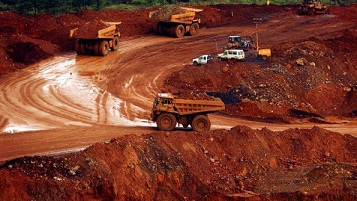By Our Business Bureau
NEW DELHI/KOLKATA/BHUBANESWAR: In its latest publication titled ‘Indian Mining: A Synopsis’, Federation of Indian Mineral Industries (FIMI) notes that before introduction of auctions to award mineral assets, 2754 MLs were executed between 2006 and 2010, most of which were greenfield blocks. Though the count dwindled in the period from 2010 to 2014, still 494 ML deeds were executed.
In Odisha, the first three iron ore blocks to be successfully auctioned – Ghoraburhani-Sagasahi, Kamalang (West) and Netrabandha Pahar have gone to companies that turned bankrupt and were admitted to the National Company Law Tribunal (NCLT). Of the three, the resolution of Essar Steel and Bhushan Steel Ltd (BSL) have been completed under an NCLT monitored process. The other firm – Bhushan Power & Steel Ltd (BPSL) in still in the throes of insolvency resolution.
Five years into the amendment of the Mines and Minerals (Development & Regulation) Act and enunciation of Mineral Auction Rules in 2015, mining leases (ML) have been executed for only five mineral blocks.What’s disquieting is that all are brownfield blocks and no virgin block has been opened up for mining yet.
This is in glaring contrast to the pace of mineral concessions awarded and MLs executed in the pre-auction regime.
To this date, 70 freehold or virgin mineral blocks across states have been put to online auctions since 2015-16. The estimated value of these resources is Rs 2.52 trillion and the host states are tipped to gain total revenue worth Rs 2.02 trillion over the lease period spanning 50 years. But, the euphoria on auctions has not generated the alacrity on getting these blocks mining ready.
“What has held back the opening of the virgin mineral blocks is the labyrinth of clearances that the new lesses have to obtain. Though the Union government has set up the Post-Auction Mining Clearances and Approvals Facilitator (PAMCAF), an inter-ministerial group to hasten clearances, it hasn’t proved to be of much help. And, in some case, there have been unexpected problems cropping up like successful bidding firms turning insolvent”, said a mining industry source.
Fimi, however, believes that auctions have halted extraction of minerals from new blocks. Data compiled by the mineral body illustrates that India is among the chosen few mineral rich nations or jurisdictions where auctions are the preferred method of grant of mineral assets. Most resource rich nation still swear by the time honoured First Come First Served (FCFS) allotments.
China, for example, has mix of both auctions and FCFS allotments. FCFS is meant for unexplored areas whereas auctions are applicable only to explored mineral deposits. Leases are granted for tenures ranging from 10 to 30 years depending on the quantum of deposits. Mozambique follows the same strategy as China’s granting mineral blocks for 25 years with provision to renew by another 25 years.
Indonesia has the auctions regime for metallic minerals and coal. For non-metallic and rock minerals, FCFS is still the preferred option. Peru has mainly the FCFS system in place and auctions are invoked only if multiple applications are filed simultaneously on overlapping mining areas. Brazil conducts auctions only for cancelled mineral blocks.
Meanwhile, Steel prices are set to increase by about ₹2,000 a tonne next month on the back of strong demand and a rise in raw material prices. This would be the fourth consecutive month that steel prices have increased.
Early this month, steel companies had raised prices by ₹1,750, on the back of good demand from dealers and the steel consuming industries.
Steel prices, which have already gone up by ₹2,000 a tonne in the last two months, are firming up on the back of strong global trend.
Domestic demand in China, the global price setter, has been holding up and pushing up key raw materials prices, such as as iron ore and coking coal. More importantly, China’s exports have fallen substantially, as most of its production has been consumed domestically. Global prices have also firmed up in the absence of dumping by China.
Steel prices have risen by over $100 a tonne (₹7,100) to $535 ($420) a tonne in the last two months, and Indian steel companies have enough head-room to increase prices, sources said.
Large iron ore miners have marked up prices, with the state-owned NMDC hiking prices of iron ore by ₹200 a tonne in January.
In fact, iron ore prices rose by 14 per cent to $106 1 tonnes last month, against $96 logged in November. Similarly, coking coal prices increased 10 per cent to $145 a tonne, against $134 recorded in November.
With Indian merchant miners bidding aggressively in the recent Odisha mining auction and amid sustained demand, iron ore prices are set to rule firm in the coming days, said a steel company official.






















